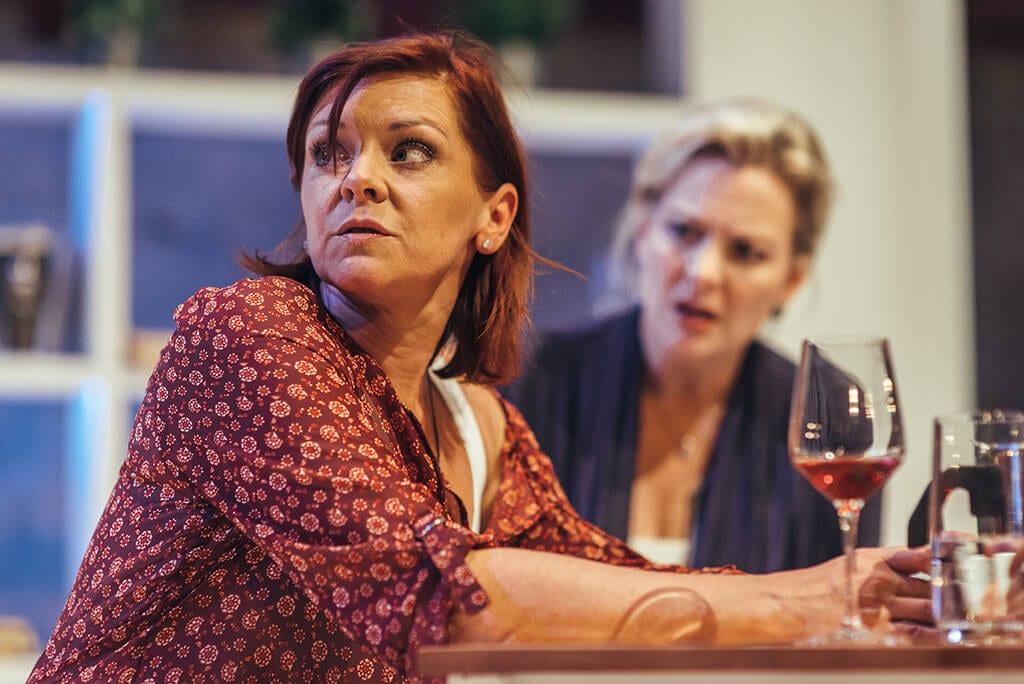Donald Margulies’ Dinner with Friends is an entertaining comedy about friendship, separation and life’s journey; not only that of a couple but one of a friendship as well. Gabe and Karen, a happily married middle-aged couple, have been friends with Tom and Beth, another married couple, for many years. They seemingly lead affluent, settled and cosy lives. They holiday at “The Vineyard” together, they raise their children together, and they have dinners together – always impeccably made by Gabe and Karen. Over dessert during such a dinner, Beth tearfully reveals that she and Tom are getting a divorce. Tom – supposedly away in DC at the time – has been having an affair, with a 26 year old travel agent, these past few months and wants a divorce. When Tom finds out that Beth has told their friends, he claims she has unfairly presented herself as the wronged party, and feels he must “hedge his bets”, visit his friends immediately and present his side of the story.
Flash back 12 years, summer in Martha’s Vineyard, the newlywed Gabe and Karen set up Tom and Beth. They don’t really hit it off, but in light of Gabe and Karen’s perfect happiness, everything appears rosy and possible. Flash forward a few months after the divorce, Tom revels in his newfound, care-free, sex-filled happiness over lunch with Gabe and Beth takes Karen by surprise, when she announces her up-coming nuptials. Where Gabe and Karen feel unsettled and compelled to question their relationship and marriage, not to mention their friendship with Beth and Tom; Tom and Beth, appear to have gotten a second chance in happiness.
Margulies’ play is funny, fast-paced and up to a point psychologically perceptive. It captures how couples half listen or don’t listen and talk over each other. The dialogues are realistic and the characters easily recognisable. The perfect couple with a life as glossy as the life-style magazine they write for, slightly self-involved to notice their friend’s problems; the high-powered lawyer, part manboy part textbook middle-life crisis; the artsy, ditzy desperate housewife. The scenes between the two men show elegantly the collapse of their friendship, and the final scene between Gabe and Karen is touchingly realistic, as they struggle to re-evaluate their marriage and move forward now that “practical matters have overtaken abandon”.
Despite its palatability Dinner with Friends leaves you craving for something more; something more complex, something more revelatory. Relationships and their attenuations and transformations over time are a commonly used theme that needs depth and complexity to be memorable and engaging. The characters despite their familiarity are more akin to those from a romcom rather than layered, complex, fallible living and breathing people. More like a run-of-the-mill American TV-series than an “étude de moeurs”.




